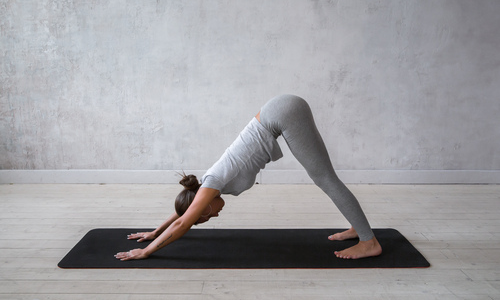
Managing Chronic Pain with Yoga
Pain control is one of the lesser-known benefits of practicing yoga. Whether you have back pain, migraines, arthritis, fibromyalgia, or another painful condition, yoga can help you manage your symptoms.
Yoga Improves Flexibility
Muscle or joint tension, common with some chronic conditions, can increase your pain and reduce flexibility. Unfortunately, the problem is likely to worsen if you remain sedentary.
Yoga poses, known as "asanas," help you gradually improve your flexibility and loosen tight muscles, joints, and tissues. Your yoga instructor can show you how to use blocks, cushions, belts, and other props to make poses easier. If your mobility is limited, you can still enjoy the many advantages yoga offers with chair yoga. All of the poses are performed while you remain seated.
Performing Yoga Regularly May Increase Range of Motion
Reduced range of motion in your neck, back, arms, shoulders, hips, or legs makes it hard to move your body easily. You may find bending over to tie your shoe or lifting your arms over your head to take off your shirt challenging if your range of motion is limited. Trying to force movements can result in an injury or an increase in pain. When you improve your flexibility with yoga, your range of motion is bound to increase.
Downward facing dog, a classic yoga pose, can help you loosen muscles in your hips, legs, and back while strengthening your core. The pose is performed with your hands and feet on the ground while your body forms an inverted "V" shape.
Reducing Stress Through Yoga Can Ease Your Pain
It's not unusual to feel a little stressed when you're constantly in pain. Unfortunately, frequent stress coupled with chronic pain can lead to even more pain. Fortunately, yoga moderates your body's response to stress. As you perform poses, your body releases serotonin and dopamine, natural brain chemicals that help you feel relaxed and content.
When you're relaxed, the production of the stress hormone cortisol decreases. Chronically elevated cortisol levels can increase inflammation throughout your body, adding to your pain. High cortisol levels may also be related to an increase in toxins that contribute to aches and pain.
Women who were emotionally distressed took yoga classes for three months in a study that appeared in Medical Science Monitor. Yoga participants reported less stress, anxiety, headaches, and back pain compared to women on the waiting list for yoga classes.
Yogic Breathing
Mastering deep, yogic breathing may also help you reduce your pain. Yoga Journal notes that short, shallow breathing that is common when people feel pain may increase the production of stress hormones. Breathing deeply stimulates your vagus nerve, which promotes relaxation and lowers your stress level.
Better Sleep
It's hard to get a good night's sleep when you're in pain. After a night spent tossing and turning, you're likely to feel exhausted, irritable, and depressed the next day. Many of the 20 percent of Americans who suffer from chronic pain report substandard sleep quality, according to the National Sleep Foundation's Sleep in America poll. Unfortunately, if you start to feel anxious or depressed about your lack of sleep, your sensitivity to pain may increase.
Performing yoga, especially in the evening, may help you relax and calm your mind, making it easier to fall asleep and stay asleep. Older people who participated in a study published in the Journal of Ayurvedic Medicine reported fewer sleep disturbances and better sleep quality after performing yoga.
Would you like to control your pain naturally? Yoga classes can help you manage your aches and pains while strengthening your muscles and improving flexibility. Get in touch with us if you'd like to join one of our yoga classes.
Sources:
National Sleep Foundation: Pain and Sleep, 12/4/20
